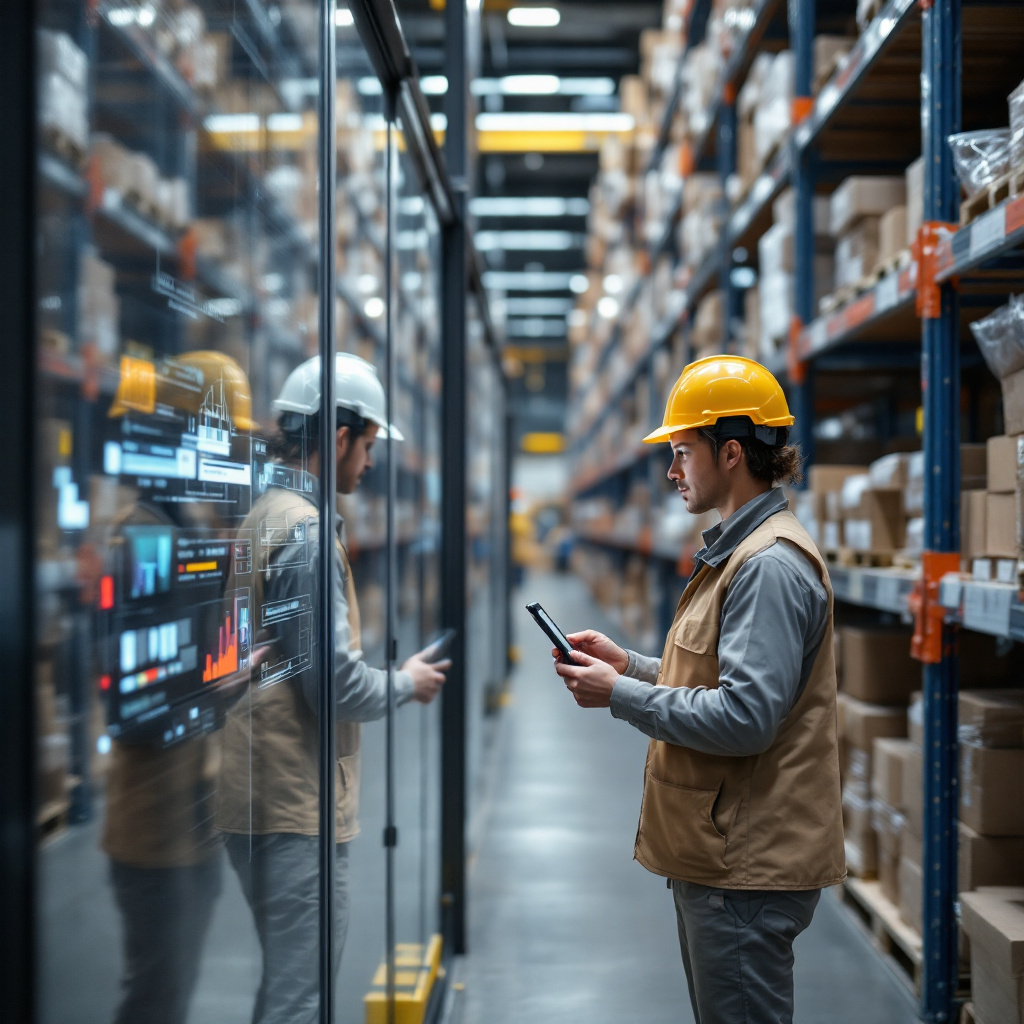ai vs chatbots: key differences in logistics communication
When comparing AI and chatbots in logistics, the focus is on how they transform communication processes. AI in logistics often manifests through automated email systems and conversational tools that manage operational and customer interactions. While both technologies use advanced AI to achieve efficiency, their communication modes differ. AI email automation works asynchronously, sending updates or alerts that recipients read at their convenience. A chatbot, however, provides real-time interaction, managing customer queries on the spot.
The key differences lie in speed, personalization, and interaction style. Email automation is ideal for structured, repeatable content such as shipment updates, invoices, and scheduled notices. These can be powered by machine learning algorithms that tailor content for better customer engagement. In contrast, chatbots integrate natural language processing to interpret and respond to unstructured queries. This ability allows them to address a wide range of concerns instantly, often improving customer experience in fast-moving situations.
From an operational perspective, asynchronous email allows for thoughtful script creation, ensuring compliance and consistency, while chatbots maintain a conversational and dynamic and engaging front-end. AI email automation can integrate AI-driven personalization strategies that learn from interactions, whereas chatbots can simulate human-like discussion patterns to satisfy customer expectations in service-oriented scenarios.
Using these systems together can be powerful. Scheduled AI messages handle proactive communication, and chatbots respond to immediate needs. Logistics companies seeking to integrate AI into communication workflows often benefit from this hybrid approach, which supports both proactive and reactive engagement.

The choice between these tools comes down to specific use cases, the complexity of customer interactions, and operational priorities. Understanding these key differences helps in selecting the right AI for your logistics communication strategy.
ai email automation: workflow and automation tools
AI email automation in logistics is designed to automate a variety of important communications. A typical workflow might include order confirmation, shipment updates, delay alerts, invoicing, and satisfaction surveys. These structured communications keep the supply chain transparent for customers and partners.
Automation tools for logistics email systems integrate seamlessly with transportation management systems (TMS) and enterprise resource planning (ERP) platforms. This allows the AI to pull shipment status, billing data, and estimated delivery times directly from operational databases. By doing so, businesses can track and manage email automation for logistics effectively without manual intervention.
Data supports the impact of email automation in logistics. AI-driven systems have been shown to boost engagement rates by up to 50% through timely updates and personalized messaging. Operational efficiency also improves by 20–25% when manual processes for invoicing, order confirmations, and follow-ups are replaced with intelligent AI automation capabilities.
These personalization strategies use data-driven insights to tailor messages to the recipient’s behavior and service history. This level of customization improves conversion rates and overall customer experience. It also meets customer expectations for consistent, accurate communications. In addition, AI responds not just to transactional triggers but can be scheduled for milestone reminders and lifecycle events, reducing repetitive tasks for the support team.
By implementing the right automation, logistics companies can save you hours of staff time, minimize human error, and deliver constant, predictable communication to a growing customer base. The ability to grow communications capacity without increasing headcount makes AI email automation a cost-effective core of modern logistics process automation.
Drowning in emails?
Here’s your way out
Save hours every day as AI Agents label and draft emails directly in Outlook or Gmail, giving your team more time to focus on high-value work.
ai agents and chatbots: use cases of ai chatbots in logistics
AI chatbots serve multiple roles in logistics, enhancing both front-end customer service and back-end operations. For customer-facing operations, an AI chatbot can provide around the clock shipment tracking, estimated delivery times, and proof of delivery confirmations. This responsive approach aligns with growing customer expectations for instant service.
Internally, conversational AI agents can also streamline inventory checks, order processing, and load optimization. Equipped with analytics and machine learning capabilities, they can handle up to 80% of routine inquiries autonomously by interacting with staff through chat interfaces. This reduces workload and frees human agents to focus on more complex issues.
Financially, logistics companies using AI chatbots report a 30–40% cut in customer service costs by automating repetitive tasks and providing immediate answers around the clock. This greatly improves customer engagement and helps to retain loyalty in competitive markets. Businesses exploring logistics automation case studies see this benefit amplified when chatbots are integrated with other AI solutions for operational optimization.

These specific use cases show how AI-powered chatbots do more than answer standard queries. They can integrate with back-end AI agents to manage scheduling, trigger maintenance warnings, and help simulate operational scenarios. By leveraging AI agents and chatbots together, logistics workflows become more efficient from planning to delivery.
ai agents vs chatbot: use ai for operational efficiency
In logistics, there is often confusion between AI agents vs chatbots. An AI agent is a back-end system designed to automate specific processes, analyze amounts of data, and act on predefined triggers. It might monitor fleet health for predictive maintenance or update warehouse stock levels based on real-time sensor data. A chatbot, on the other hand, is the interface customers or staff interact with through conversational scripts.
Using AI in tandem means deploying AI agents for internal process automation and a chatbot for handling incoming customer queries. For example, a predictive maintenance AI agent could detect a potential breakdown and trigger an update, while a customer-facing chatbot informs a client of updated delivery timelines. This coordinated approach helps handle repetitive logistics tasks more efficiently.
The integration of autonomous AI agents with chatbots with AI capabilities ensures both operational readiness and superior customer experience. The back-end AI agent can autonomously optimize routes and load distribution, while the chatbot maintains a dynamic and engaging communication channel with customers. Businesses that integrate AI this way see improved optimization results and consistent service delivery.
When it comes to AI development services for logistics, the best AI solutions are those that match business requirements with the right automation capabilities. Selecting the right AI combination means understanding what’s the difference between tools designed to automate internal processes and those designed for external communication.
Drowning in emails?
Here’s your way out
Save hours every day as AI Agents label and draft emails directly in Outlook or Gmail, giving your team more time to focus on high-value work.
ai assistants for small businesses: business automation in logistics
Small businesses face unique challenges in logistics. Limited staff, higher risk of human error, and fast-changing customer expectations can strain resources. AI assistants tailored for logistics can help automate routine communications, chat responses, and reporting. This is business automation in practice, designed to automate common operations for faster service.
These AI assistants combine the abilities of both email automation and basic chatbots. They manage onboarding communications, send invoices, and respond to shipment tracking requests autonomously. This means employees focus on higher-value work while the AI handles repetitive tasks. For small companies in e-commerce, this can significantly improve turnaround times and reduce mistakes.
Case studies show how SMEs using AI assistants achieve improved service metrics, such as quicker resolution of customer queries and better conversion rates through timely, personal and helpful engagement. The knowledge base fed into such assistants allows them to learn from interactions and improve over time.
Small businesses searching for the right AI should consider AI assistants that integrate AI-powered chatbots with email automation tools. This hybrid approach aligns with digital transformation in customer service trends, ensuring these businesses remain competitive. With the ability to grow operations without equally growing staff numbers, small companies can maintain high standards while keeping costs manageable.
faqs: right ai for your logistics operation
When selecting the right AI, businesses should match their requirements to the strengths of AI email automation and chatbots. Below are answers to common questions.
What’s the difference between AI email automation and a chatbot?
Email automation sends scheduled, personalized communications asynchronously, while a chatbot handles real-time customer interaction using conversational AI.
Can I integrate AI agents and chatbots together?
Yes, combining them enables back-end process automation with front-end customer interaction for maximum efficiency and improved customer experience.
How much can chatbots reduce workload?
AI chatbots can handle up to 80% of routine inquiries, significantly lowering the burden on your support team and freeing them for complex tasks.
Are AI email systems cost-effective?
Yes, they can deliver operational efficiency gains of 20–25% and boost customer engagement by up to 50% without proportional staffing increases.
What about AI security concerns?
Choose reputable AI solutions with strong data protection policies. Ensure system access is controlled, and sensitive data processing follows compliance standards.
Can small businesses benefit from AI automation?
Yes, small businesses can use AI assistants to automate routine tasks, improve service, and handle larger operation volumes without more staff.
Do AI chatbots learn over time?
Many modern chatbots with AI capabilities learn from interactions to improve accuracy, relevance, and ability to handle complex queries.
How do I measure AI success in logistics?
Track metrics like response times, customer satisfaction, operational cost savings, and reduction in repetitive tasks to gauge your AI’s impact.
Are there customization options?
Yes, you can customize automation scripts, integrate AI with your systems, and tailor responses to match your brand and business requirements.
What’s the best AI setup for logistics?
The best AI setup depends on your needs. Many companies choose a hybrid model that combines email automation with AI-powered chatbots for balanced coverage.
Drowning in emails?
Here’s your way out
Save hours every day as AI Agents label and draft emails directly in Outlook or Gmail, giving your team more time to focus on high-value work.